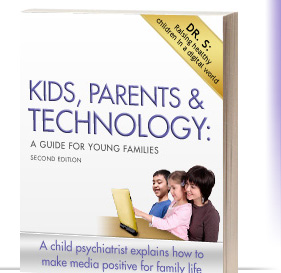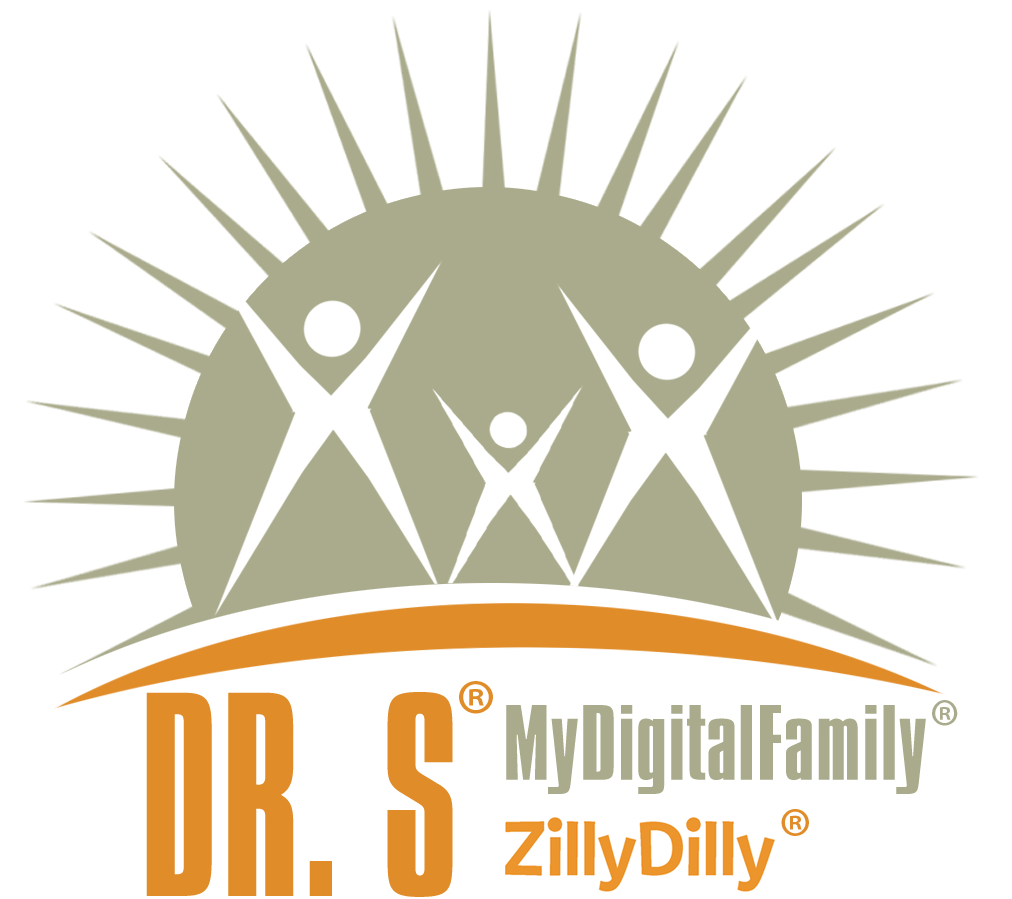Originally published by ThinkerMedia: BestThinking.com on March 5, 2012
As the buzz grows louder with Apple’s new iPad’s launch this week, children will continue to covet the magic tablet more than any other toy. Parents must now keep learning how to better use these devices because these are not toys but actually brilliantly engineered adult tools. In fact, if we really think about it, the iPad is a disembodied robot presaging its more advanced progeny. And in the case of kids, these robots will doubtlessly be settling into their playpens and cribs within less than a decade if we let our current carelessness continue.
It is easy to understand why parents have a hard time resisting their children’s clamor. Parents intuitively understand that an iPad is abundant with novel stimuli to kids’ fascination and engagement. Kids crave it precisely because nature has gifted them with the ‘wow’ experience — powerful curiosity that leads to intense focusing, learning, and growing their minds just as their brains are developing fastest. The good news is that this is also the time for parents to help kids achieve their best brain potential. It is the right time for parents to help properly wire their children’s brains positively for a lifetime.
It is time for parents to begin teaching their children positive media consumption habits early:
– follow a simple tenet, “A device only belongs in my child’s hands or in my home only if I am sure that it will enrich my children’s development and my family’s health.”
– make sure apps and other media are truly effective as educational, and not just claimed to be. Check with your child’s teachers before you buy.
– balance content, prioritizing Family Relationships, Socialization, Values Education, Education Enrichment, and limiting Entertainment.
– tie media consumption to developmental age and maturity: Introduce preschoolers to various media only in a fully-involved, thoughtful and focused way; be flexible and respectful, and avoid major conflict; gradually expand privileges for responsible, mature kids to eventually allow media independence by mid to late teens; and accommodate special needs individuals.
– teach that healthy media self-care is an ongoing process that starts early, like good hygiene and nutrition, and includes self-discipline, zeal for discovery essential for excellence, time and information management, and planning and organizational skills.
– keep homework time and mealtimes totally media-free, and create media-free zones and times at home and in the car.
– park and charge cell phones near the front door upon entering the house.
– keep the iPad and other devices in central common family areas subject to age-dependent limits on private use and alone time.
– keep positive media consumption and its monitoring an ongoing family project and conversation topic.
Some general help from experts and industry could orient parents and teachers and clearly empower them to manage children’s entire digital experience as fully as possible:
– enable parents and teachers to put practices into effect that align technologies with what is good for growing kids and families and teach our kids the boundaries between man and machine, tool and toy, entertainment and striving towards fuller potential.
– clarify for parents and teachers making purchasing decisions about balancing kids’ developmental needs and limiting entertainment.
– provide a consistent, balanced, comprehensive transportable system for homes, schools, libraries, and healthcare.
– assist parents and teachers by organizing all media opportunities and deliver them in ways easy to manage.
– support quality applications, research, and development for special needs.
Luckily, with technology moving forward so fast, we keep getting new chances to thoughtfully improve its uses to help rather then harm kids’ growth and development. Instead of yet again merely allowing market fads and mediocre pop-culture shape the future of the crucial area of kids and technology, we now have yet another chance to use technologies to substantially benefit child development and family life. In fact, some mobile apps, online sites, e-books, and active games for consoles are good beginnings. Now is the time for parents, educators, government, media, and tech companies to seriously collaborate with fresh new ideas.
And there is no place like home to start.
Eitan Schwarz, MD FAACAP DLFAPA, also known as Dr. S, www.mydigitalfamily.org, is the inventor of ZillyDilly for iPad and author of “Kids, Parents & Technology: A Guide for Young Families”. He has researched digital play therapy and is on the faculty of Northwestern University’s Feinberg School of Medicine.
Article by Eitan ‘Dr. S®’ Schwarz, MD
©All rights reserved



EXPERT COMMENT: Preparing your kids for the iPad and beyond
Originally published by ThinkerMedia: BestThinking.com on March 5, 2012
As the buzz grows louder with Apple’s new iPad’s launch this week, children will continue to covet the magic tablet more than any other toy. Parents must now keep learning how to better use these devices because these are not toys but actually brilliantly engineered adult tools. In fact, if we really think about it, the iPad is a disembodied robot presaging its more advanced progeny. And in the case of kids, these robots will doubtlessly be settling into their playpens and cribs within less than a decade if we let our current carelessness continue.
It is easy to understand why parents have a hard time resisting their children’s clamor. Parents intuitively understand that an iPad is abundant with novel stimuli to kids’ fascination and engagement. Kids crave it precisely because nature has gifted them with the ‘wow’ experience — powerful curiosity that leads to intense focusing, learning, and growing their minds just as their brains are developing fastest. The good news is that this is also the time for parents to help kids achieve their best brain potential. It is the right time for parents to help properly wire their children’s brains positively for a lifetime.
It is time for parents to begin teaching their children positive media consumption habits early:
– follow a simple tenet, “A device only belongs in my child’s hands or in my home only if I am sure that it will enrich my children’s development and my family’s health.”
– make sure apps and other media are truly effective as educational, and not just claimed to be. Check with your child’s teachers before you buy.
– balance content, prioritizing Family Relationships, Socialization, Values Education, Education Enrichment, and limiting Entertainment.
– tie media consumption to developmental age and maturity: Introduce preschoolers to various media only in a fully-involved, thoughtful and focused way; be flexible and respectful, and avoid major conflict; gradually expand privileges for responsible, mature kids to eventually allow media independence by mid to late teens; and accommodate special needs individuals.
– teach that healthy media self-care is an ongoing process that starts early, like good hygiene and nutrition, and includes self-discipline, zeal for discovery essential for excellence, time and information management, and planning and organizational skills.
– keep homework time and mealtimes totally media-free, and create media-free zones and times at home and in the car.
– park and charge cell phones near the front door upon entering the house.
– keep the iPad and other devices in central common family areas subject to age-dependent limits on private use and alone time.
– keep positive media consumption and its monitoring an ongoing family project and conversation topic.
Some general help from experts and industry could orient parents and teachers and clearly empower them to manage children’s entire digital experience as fully as possible:
– enable parents and teachers to put practices into effect that align technologies with what is good for growing kids and families and teach our kids the boundaries between man and machine, tool and toy, entertainment and striving towards fuller potential.
– clarify for parents and teachers making purchasing decisions about balancing kids’ developmental needs and limiting entertainment.
– provide a consistent, balanced, comprehensive transportable system for homes, schools, libraries, and healthcare.
– assist parents and teachers by organizing all media opportunities and deliver them in ways easy to manage.
– support quality applications, research, and development for special needs.
Luckily, with technology moving forward so fast, we keep getting new chances to thoughtfully improve its uses to help rather then harm kids’ growth and development. Instead of yet again merely allowing market fads and mediocre pop-culture shape the future of the crucial area of kids and technology, we now have yet another chance to use technologies to substantially benefit child development and family life. In fact, some mobile apps, online sites, e-books, and active games for consoles are good beginnings. Now is the time for parents, educators, government, media, and tech companies to seriously collaborate with fresh new ideas.
And there is no place like home to start.
Eitan Schwarz, MD FAACAP DLFAPA, also known as Dr. S, www.mydigitalfamily.org, is the inventor of ZillyDilly for iPad and author of “Kids, Parents & Technology: A Guide for Young Families”. He has researched digital play therapy and is on the faculty of Northwestern University’s Feinberg School of Medicine.
Article by Eitan ‘Dr. S®’ Schwarz, MD
©All rights reserved